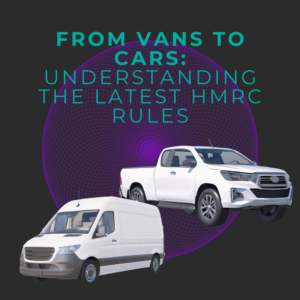You may recall back in our March 2024 newsletter we discussed the Government’s decision to class double cab pick ups as cars and then a week later for them to go back on this decision. Now, in a U-turn crazier than Swindon’s magic roundabout, and likely overlooked by most in the Autumn 2024 budget, our new Labour Government has decided to classify double cab pickups as cars, again.

But what is a double cab pick up I hear you say? According to HMRC this type of vehicle normally has a front passenger cab that contains a second row of seats and is capable of seating about 4 passengers, plus the driver. It has four doors capable of being opened independently, whether the rear doors are hinged at the front or the rear (two door versions are normally accepted to be vans) and an uncovered pickup area behind the passenger cab.
What is changing?
From 6 April 2002 car benefits were based on how HMRC classified the vehicle in line with definitions used for VAT purposes, as either a car or van. To do this HMRC looked at the payload and anything of 1 tonne (1,000kg) or more was accepted as a van for benefits purposes.
From 6 April 2025 however, HMRC will introduce a two part test to determine whether the vehicle is a car or van. The first part is to understand the construction of the vehicle in the relevant tax year and then we need to consider whether that construction is primarily suited for the conveyance of goods or burden of any description.
HMRC have released further guidance on this area here and also a guide on carrying out the two part test here.
Transitional arrangements
There will of course be a period of transition to this new ruling for employers who have purchased, leased or ordered a double cab pickup before 6 April 2025, whereby they will be able to rely on the previous treatment until the disposal, lease expiry or 5 April 2029, whichever is sooner.
Benefits of any kind can be baffling but here at AMR, with our experienced team, are able to assist you in understanding how to treat your car, or van. Please feel free to get in touch to see how we can help.









